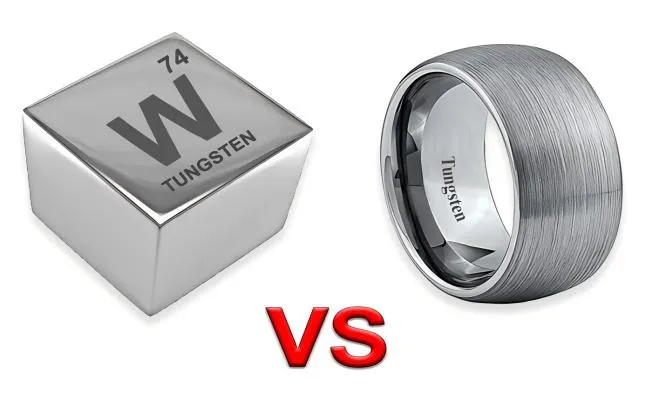Silicon, often overshadowed by more commonly discussed minerals like calcium and magnesium, plays a crucial role in maintaining the health and function of the human body. As the second most abundant element in the Earth's crust after oxygen, silicon is ubiquitous and essential for various physiological processes.
Studies on the Safety and Potential Health Benefits of Silicon Supplementation
Research on silicon supplementation's safety and health benefits is an evolving field that has garnered increasing interest from scientists and healthcare professionals. Studies have explored the role of silicon in promoting bone health, connective tissue formation, and overall skin health. Silicon is believed to play a key role in collagen synthesis and bone mineralization processes.
One study published in the Journal of Nutrition, Health & Ageing found that silicon supplementation may have a positive impact on bone mineral density in postmenopausal women. Another study published in Nutrients suggested that silicon intake through diet or supplements could potentially benefit skin health by improving elasticity and reducing wrinkles.
While these findings are promising, more research is needed to fully understand the long-term effects of silicon supplementation on human health. Overall, current evidence suggests that silicon supplements can be safe when taken within recommended dosages.
However, individuals should consult with their healthcare provider before starting any new supplement regimen, especially if they have underlying health conditions or are taking medications that may interact with silicon supplements. As research continues to uncover the potential benefits of silicon supplementation, consumers need to stay informed and make educated decisions about their dietary supplement choices based on reliable information.
Allergies and Sensitivities to Silicon Compounds
Silicon is generally considered safe for most people when taken in appropriate amounts through dietary sources. However, some individuals may experience allergic reactions or sensitivities to silicon compounds found in supplements.
Allergic reactions to silicon are relatively rare but can manifest as skin rashes, itching, swelling, or respiratory symptoms such as wheezing or difficulty breathing. It is crucial for individuals with known allergies to silica or other forms of silicon to exercise caution when considering silicon supplementation.
Furthermore, individuals with a history of hypersensitivity reactions to other minerals or trace elements may be at an increased risk of developing allergies to silicon supplements. This underscores the importance of consulting with a healthcare provider before incorporating silicon supplements into one's routine, especially if there is a known history of allergic reactions.
Allergic responses can vary in severity from mild discomfort to potentially life-threatening anaphylaxis, making it essential to prioritize safety and awareness when it comes to supplementing with silicon. In cases where an individual suspects they may be experiencing adverse reactions to silicon supplements, discontinuing use and seeking medical advice promptly is recommended.
Healthcare professionals can conduct allergy testing or guide managing any allergic symptoms that may arise due to silicon supplementation. It is always advisable for individuals with preexisting allergies or sensitivities to minerals to approach new supplements cautiously and be vigilant for any signs of adverse reactions.
Interactions with Medications or Other Supplements
Another critical consideration when evaluating the safety of silicon supplements is the potential for interactions with medications or other dietary supplements. Silicon has been suggested to enhance the absorption of certain medications due to their binding properties, which could affect their efficacy or lead to unintended side effects.
Individuals taking medications should consult with their healthcare provider before starting any new supplement regimen that includes silicon. Additionally, interactions between silicon supplements and other minerals or vitamins must be taken into account when formulating a comprehensive dietary plan.
High doses of certain minerals like calcium or magnesium could potentially compete with silicon for absorption in the body, impacting overall nutrient balance. Therefore, it is advisable for individuals utilizing multiple supplements concurrently to seek professional guidance on optimizing dosages and timing schedules.
The potential interactions between medications/supplements and silicon underscore the importance of personalized health assessments before embarking on a supplement regimen that includes this mineral compound. By prioritizing informed decision-making and collaborating closely with healthcare providers, individuals can mitigate risks associated with possible drug-nutrient interactions while reaping the benefits that safe supplementation may offer as part of a holistic wellness strategy.
Silicon supplements come in various forms, with two of the most common being silica and orthosilicic acid. Silica, also known as silicon dioxide, is a compound that is naturally found in minerals like quartz and sand.
It is commonly used as an anti-caking agent in supplements and may be listed on labels as silicon dioxide or silica gel. On the other hand, orthosilicic acid is a more bioavailable form of silicon that is believed to be better absorbed by the body.
This form of silicon is often touted for its potential benefits in promoting healthy hair, skin, nails, and bones. When choosing a silicon supplement, it's essential to consider the form of silicon used to ensure optimal absorption and effectiveness.
Dosage and Usage Guidelines for Silicon Supplements
Recommended daily intake levels for silicon
Determining the appropriate dosage of silicon supplements can be a challenging task due to limited official guidelines. However, various studies suggest that an average adult may require around 5-20 milligrams of silicon per day to maintain optimal health.
It is essential to note that individual needs may vary based on factors such as age, gender, and overall health status. Consulting with a healthcare provider or nutritionist can help determine the most suitable dosage tailored to specific needs.
Best practices for incorporating silicon supplements into a healthy diet
When integrating silicon supplements into a daily routine, it is crucial to prioritize natural food sources rich in silicon alongside supplementation. Foods like whole grains, leafy green vegetables, nuts, and seeds are excellent sources of dietary silicon. Supplementing with a well-balanced diet can enhance the overall absorption and utilization of silicon in the body.
Additionally, spacing out supplement intake throughout the day rather than taking a large dose all at once can optimize absorption efficiency. Safeguarding against potential nutrient interactions is vital when taking silicon supplements.
Certain medications or other dietary supplements may interfere with the absorption or utilization of silicon in the body. Consulting with a healthcare professional before starting any new supplement regimen is advisable to ensure compatibility with existing treatments and optimize health outcomes.







